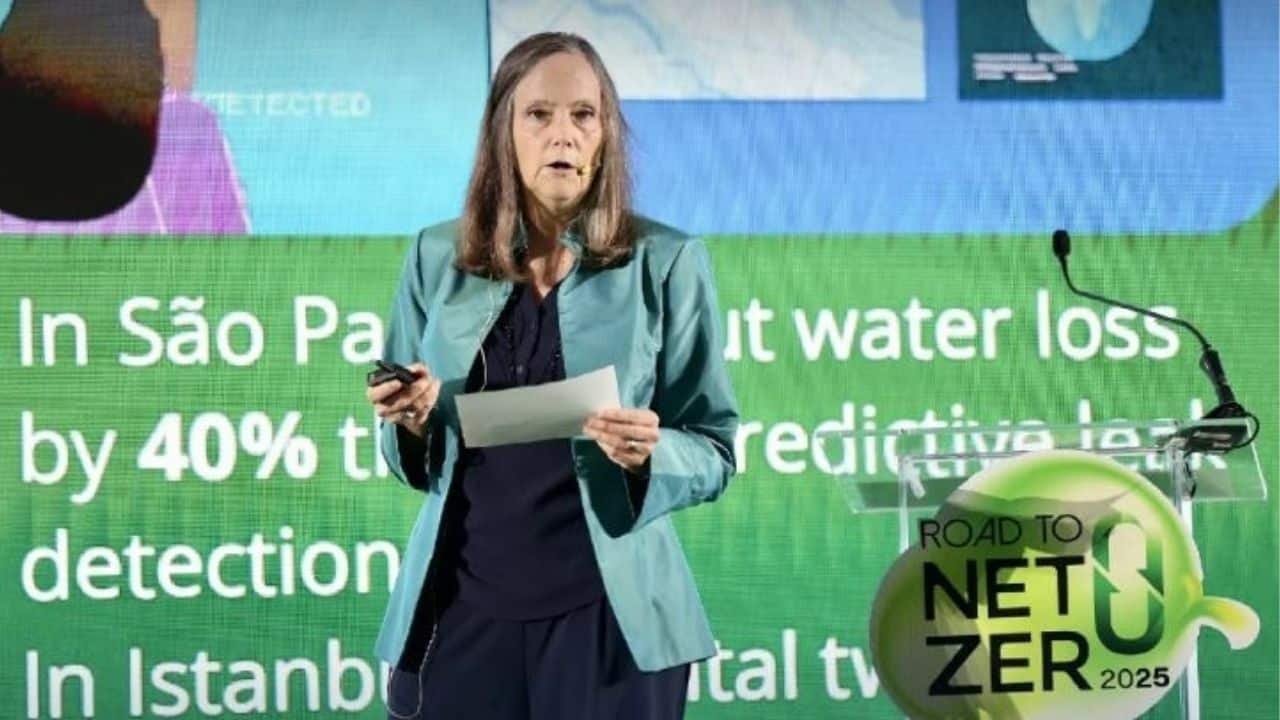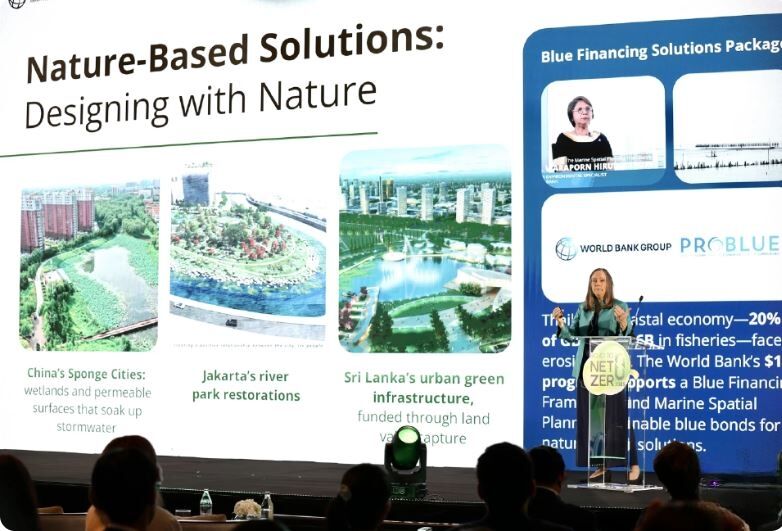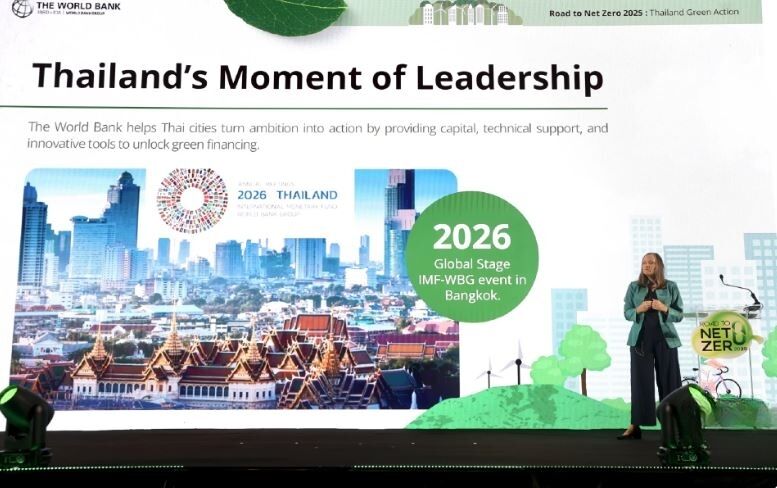Thailand urged to unlock US$2 billion for green city investment
'Cities must lead on climate change for a sustainable future,' Good says

Thailand could unlock a flood of green investment — up to US$2 billion (approximately 65 billion baht) a year — by transforming its cities into eco-smart powerhouses, a top World Bank official told a major climate forum in Bangkok.
Melinda Good, the World Bank’s Country Director for Thailand and Myanmar, delivered the bold message at the Road to Net Zero 2025: Thailand Green Action conference hosted by Thansettakij, calling on the kingdom to seize the urban sustainability moment or risk falling behind.
“Cities are where we have to act on climate change,” Good said. “If we get it right in cities, we’re going to get it right for the environment, for the economy, and for the future.”
Her keynote championed SymbioCity — a Swedish-inspired vision of cities as interconnected ecosystems — and urged Thai leaders to embrace transit-oriented development (TOD) to fix the sprawl-and-commute nightmare plaguing cities like Bangkok and Pattaya.

“TOD could attract up to US$2 billion in green infrastructure investment annually,” she noted, but only if Thailand updates land laws and creates smarter financial models for public-private development.
Water management is another critical concern.
“Across Thai municipalities, up to 40% of water supply is lost to leaks and ageing infrastructure,” said Good.
But cities like Nakhon Si Thammarat are turning things around by integrating piped water systems with wastewater treatment.
In the Eastern Economic Corridor alone, water shortages cost an estimated US$170 million a year in economic losses.
Good highlighted AI solutions already being used in São Paulo to slash water loss by 40% and Istanbul’s “digital twin” tech to manage water and energy more efficiently.

Thailand’s flood risk is also in the spotlight. A nine-phase flood defence plan worth US$12.3 billion is underway for the Chao Phraya River Basin — home to 40% of the population and two-thirds of the national GDP.
The World Bank is backing nature-based solutions too, from mangrove restoration to green roofs, all aimed at protecting Thailand’s coastal economy, which generates US$6 billion in seafood exports annually, reported The Nation.
Perhaps most exciting: Thailand could earn US$1 billion via carbon credit aggregation, bundling emissions reductions from multiple cities to fund clean transport and infrastructure.
With Bangkok set to host the World Bank-IMF Annual Meetings in 2026, the global spotlight is coming.
“This is our chance to show what transformation looks like,” Good said. “But we can’t do it alone — the private sector must step up.”
Latest Thailand News
Follow The Thaiger on Google News:


























